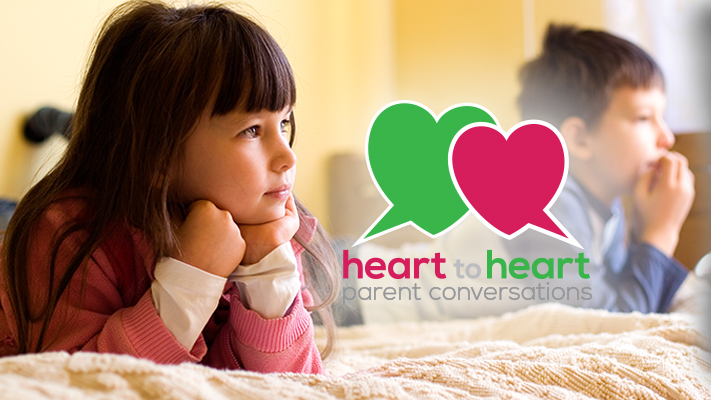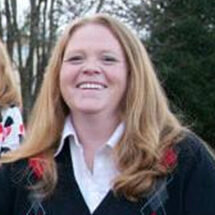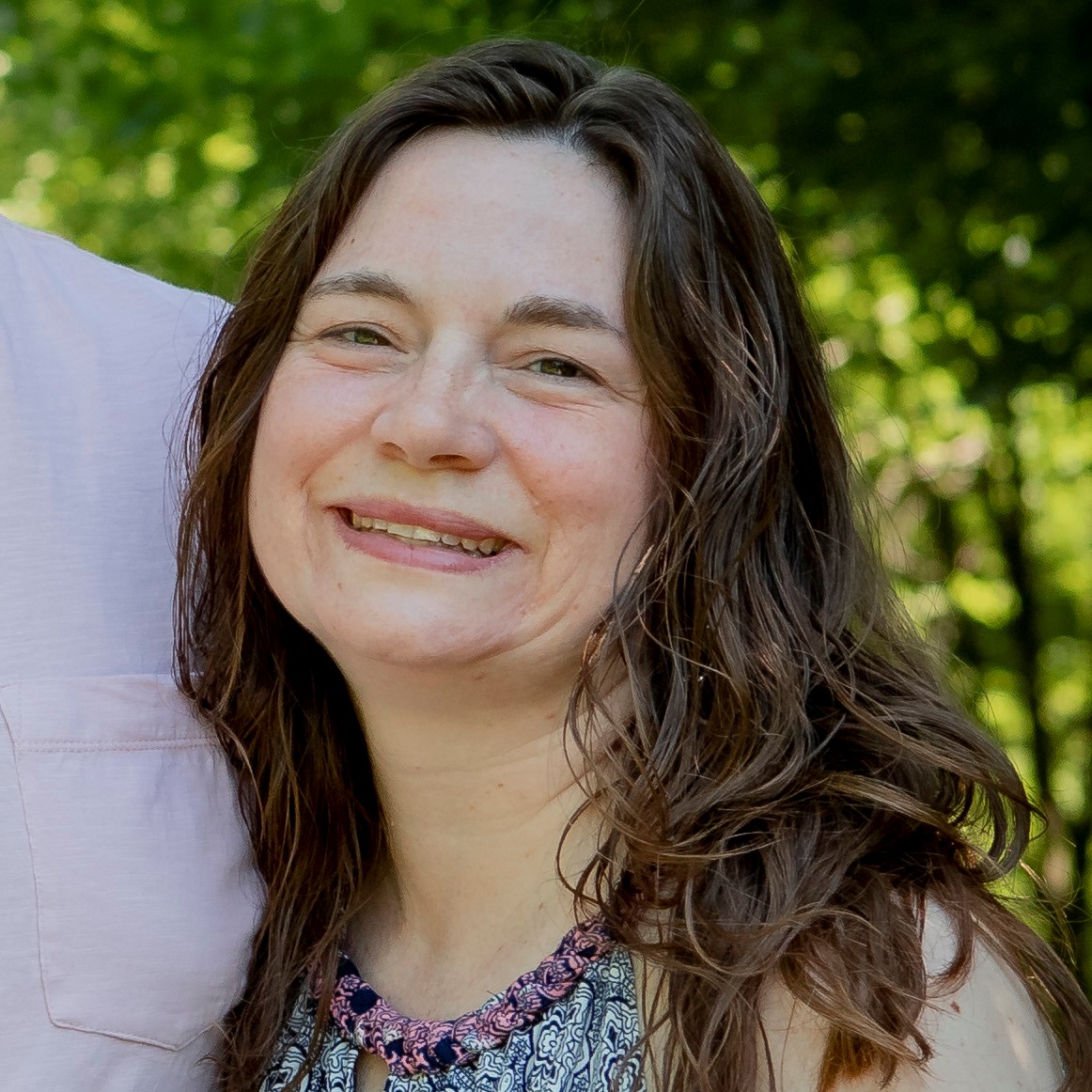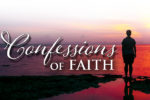 |
When I was a child, McGruff the crime dog taught us about “stranger danger,” and “Mr. Yuk” stickers alerted us to the phone number for poison control. Boom. My parents’ job was done. We kids knew how to handle dangerous situations.
That’s probably an exaggeration, but it’s how I remember my childhood. Today as a parent I feel like the dangers have multiplied. School shootings. Child trafficking. Cyber stalking. These are the new fears that prey on parents’ minds—and that are splashed on media outlets each day for our kids to hear about and see images of.
So, how do we alert our kids to the dangers around us without scaring them? Dan Nommensen and Sarah Reik offer practical solutions that we can start incorporating into our lives today.
Nicole Balza
How can we protect our kids without scaring them?
I think it’s possible to look at this question and focus on at least two different aspects. The first is the practical reality of communicating issues of safety in an age-appropriate way with our kids (for help with that, see Sarah Reik’s article). But the second part of this question involves my own reaction to living in a sinful world with all its potential dangers, pitfalls, and challenges for my kids. As I look at this question with that in mind, I have to say, “Moms and Dads, I’m scared! I really am!”
In so many ways we can now get instant access to every news feed, channel, blog, app, and site that inconveniently keeps us up to date on all the stories of our broken and sinful world. Then, after all that, it’s time to send our kids to the first day of kindergarten or high school or worse—college!
We not only hear all the detailed ways people’s lives are hurt, but we also have our own life experiences and the hardships we have had to face. Unlike our kids and their developing brains, we are better able to appreciate consequences, dangers, and even our own mortality. Yep—not gonna lie. I get scared for my kids. At times I think, How could I possibly do enough to keep them safe?
An example to consider
Have you ever read the account in Exodus chapter 2 when Moses’s mother hid Moses from the king of Egypt for three months when he sent out a decree to kill all the baby boys? Moses’s mother did all she could do to keep Moses safe from this danger for the first three months of his life but then came to appreciate the reality that she simply couldn’t guarantee he wouldn’t be discovered and be put to death. So she made a basket and sent him adrift down the Nile River. By faith and trusting that God would protect her baby, she watched that basket float away. We know how the Lord protected Moses when he was discovered by the Pharaoh’s daughter, who saved him from all that could have happened.
This example of a parent’s trust in God has given me such relief from my own fear. It has reminded me that God is truly in control—not me. As much as I like to think that I have built an impenetrable fortress of safety around my kids, that fortress is nothing compared to the everlasting and immeasurable love God has for my kids.
A God to rely on
The reality of living in a broken and sinful world means that my kids won’t be living in a protected bubble here on earth. The absence of all evil and danger will come in heaven. Until then, all the dangers of evil will be present in the lives of my children. Let’s remember this—God loves my kids even more than I am capable of loving them. Remember he not only provides his protection, but he also sent his own Son to die for us and our children. When my kids feel the effect of their brokenness and face the results of sin, his love and forgiveness are still there.
“Do not fear, for I am with you; do not be dismayed, for I am your God. I will strengthen you and help you; I will uphold you with my righteous right hand” (Isaiah 41:10).
God is there when they start school or work or even their own family. God is there in the midst of all the joys. God is there at the school parties, on the dates, on the bus, in the subway, on the trip to study abroad. God is there to give strength to resist temptations. God is there when the bad choices are made and consequences come. What a privilege that we have been given to foster faith in our children so they (and we) can always see the Lord’s presence.
It seems to me that protecting our kids and talking with them about the scary things in life starts with our own recognition of fear and the opportunity we have to trust our Lord. Let the conversations and teachable moments with our kids flow from a parent’s heart of confident trust in God.
Dan Nommensen
When my oldest child was very young, we were at our pediatrician’s office for his yearly physical.
As she was checking him all over, she reminded him that only doctors and Moms and Dads can look at private parts of his body. She said that if anyone else ever does, he should say, “No,” and then tell Mom or Dad what happened.
I remember having a mixture of emotions at that time—fear that something so horrible might ever happen to my son, guilt that I hadn’t thought to have that conversation with him before the doctor did, and sadness that it’s a necessary conversation at all. I was also struck by how matter-of-fact she was as she said those things and how my son seemed unaffected while my own emotions were churning.
How do we talk to our children about staying safe without scaring them unnecessarily? It is an important part of our responsibility as parents to equip our children with tools to keep them safe, and in order to do that, we need to be realistic about dangerous situations they might face. At the same time, I have talked with adults who continue to struggle with fear and anxiety placed on them at an early age from well-meaning parents who were trying to be protective. So how do we achieve a healthy balance in our conversations?
I believe there are two important concepts to keep in mind.
Talk to your children about what they can control
We know as Christians that there has always been sin and evil in the world and there will be until Christ returns. We can’t change that. When we focus on stories of bad things in this fallen world that are out of their control, that breeds worry. Let’s talk to our children instead about what they can control.
Instead of asking, “What are the dangers?” ask, “What are safe choices?” Avoid the phrase “stranger danger,” and focus on “stranger awareness.” Discuss how to talk to strangers and how to get help from safe strangers. (Statistics tell us that most children are victimized by people they know, so strangers aren’t the issue.)
Role-play with your children what they can do if they are in a potentially dangerous situation so that they have a chance to practice and feel confident. Make it fun. (I’m always a fan of role-playing with stuffed animals. They’re cute, and then they serve a purpose other than cluttering my house.) Teach confident body language like smiling and eye contact. Teach assertiveness skills. “No, I don’t keep secrets from Mom and Dad.” “That’s not okay, and I’m going to tell someone.”
Here are a few clear safety guidelines we can share with our children from early on:
- Know your name, address, and phone number.
- Other than doctors or parents, don’t let anyone touch your private parts or tell you to touch theirs.
- Tell a trusted adult if something or someone makes you uncomfortable. Keeping secrets is never safe.
- If you get lost, freeze and wait for the adult you were with to come back and find you.
- Don’t share personal information online.
- Respect dangerous items like matches and weapons.
By teaching our children what they can say and do, we empower them instead of scare them.
Control your own fear
I am scared of heights. I am proud to say that my children are not. The few times I’ve been brave enough to go on a Ferris wheel with my children, I’ve taken deep, silent breaths, and smiled and gushed about how beautiful it is to be up so high.
When we talk to our children about staying safe, it is important first to be calm ourselves regarding the issue we are discussing. If you find it is difficult to keep your own anxiety at bay, either because you struggle with anxiety in general or because you were the victim of something yourself as a child, seek help from a trusted friend or professional so that you do not pass along your fears.
I can equip my children to help them stay safe, but I cannot protect them perfectly. It always comforts me to remember that my children are God’s first. He claimed them by Baptism, forgave them, and made them his own. He has given them guardian angels, and he is working even harder than I am to protect them. Rest securely in that truth, and share it with your children.
Sarah Reik
Looking for more on this topic? Dan and Sarah discuss this in-depth in a video interview with Nicole.
Author: Multiple Authors
Volume 106, Number 1
Issue: January 2019
- Parent conversations: How can parents and kids manage stress?
- Parent conversations: What do your prayers for your children include?
- Parent conversations: How do we resist making our parenting law-based?
- Parent conversations: What Bible passages do you turn to most as a parent?
- Parent conversations: How can we help kids develop positive, healthy habits?
- Parent conversations: What tactics do you use to encourage children to tackle difficult tasks?
- Parent conversations: How can we model good listening skills for our kids?
- Parent conversations: How do we help our kids move on from mistakes?
- Parent conversations: How can we instill gratitude in our children?
- Parent conversations: How can parents find the balance between being too restrictive and too permissive?
- Parent conversations: How can we teach kids to be good friends?
- Parent conversations: What life skills will help young people as they transition to adulthood?
- Parent conversations: How do we discuss death with our children?
- Parent conversations: What does it look like for a father to be a strong Christian leader?
- Parent conversations: How can we help young adults stay engaged in the church?
- Parent conversations: What do parents need to know about video games?
- Parent conversations: How do parents not let worry get the best of them?
- Parent conversations: How do we teach our kids to value all people?
- Parent conversations: When parenting philosophies differ
- Parent conversations: How can we help today’s overwhelmed teens?
- Parent conversations: How can parents maintain a healthy marriage?
- Parent conversations: You might be a Lutheran parent if . . .
- Parent conversations: Parenting post–high school: What is a parent’s role?
- Parent conversations: How can families use the hymnal in their worship life at home?
- Parent conversations: What should Christian parents teach their children about gender?
- Parent conversations: What is vocation? How does it apply to parenting?
- Parent conversations: Why do siblings fight? How should I react when they are fighting?
- Parent conversations: How do we teach children resilience?
- Parent conversations: How do I approach vaccines as a Christian parent?
- Parent conversations: How can I explain the Sixth Commandment to a young child?
- Parent conversations: How can I help my child have an optimistic outlook?
- Parent conversations: What if we can’t follow our Christmas traditions this year?
- Parent conversations: What are ways to foster a rich prayer life in children?
- Parent conversations: How can I let the gospel shine as I parent?
- Parent conversations: How should I handle a child’s separation anxiety?
- Parent conversations: How should families prepare to go back to school?
- Parent conversations: How does a teen’s brain work?
- Parent conversations: How much should I monitor my child online?
- Parent conversations: How can parents reassure children during an uncertain time?
- Parent conversations: How can I stay calm when my child is out of control?
- Parent conversations: Should I give something up for Lent?
- Parent conversations: How can I keep my child engaged in attending church?
- Parent conversations: How can we help a stressed-out kid?
- Parent conversations: How can we nurture a proper view of “stuff”?
- Parent conversations: How involved should parents be in a child’s homework?
- Heart to heart: Parent conversations: Are we modeling kindness for our children?
- Heart to heart: Parent conversations: What’s the best parenting advice you’ve received or given?
- Heart to heart: Parent conversations: How should we handle it when people undermine our parenting decisions?
- Parent conversations: How can we prepare children for summer camp?
- Heart to heart: Parent conversations: What’s a parent’s role as a child dates?
- Heart to heart: Parent conversations: How do parents find contentment?
- Heart to heart: Parent conversations: How can we help a family with a sick parent?
- Heart to heart: Parent conversations: How can parents model healthy cell phone use?
- Parent conversations: How can we protect kids without scaring them?
- Parent conversations: What does your family’s bedtime routine look like?
- Parent conversations: What do I need to consider before I give my child a cell phone?
- Parent conversations: How can we teach gentleness and strength at the same time?
- Parent conversations: What should we do when our children grow silent?
- Parent conversations: What should we teach our children about the Reformation?
- Parent conversations: Do we want our children to be leaders or followers?
- Parent conversations: How does a parent’s role change over time?
- Parent conversations: How should I handle a disagreement with my child’s teacher?
- Parent conversations: What are the building blocks of a strong parent/child relationship?
- Parent conversations: What is our goal as parents?
- Parent conversations: What Christmas traditions do you cherish in your family?
- Parent conversations: How can we raise a generation that cherishes life?
- Parent conversations: What are the best Bible story books for family devotions?
- Parent conversations: Why should children obey their parents?









